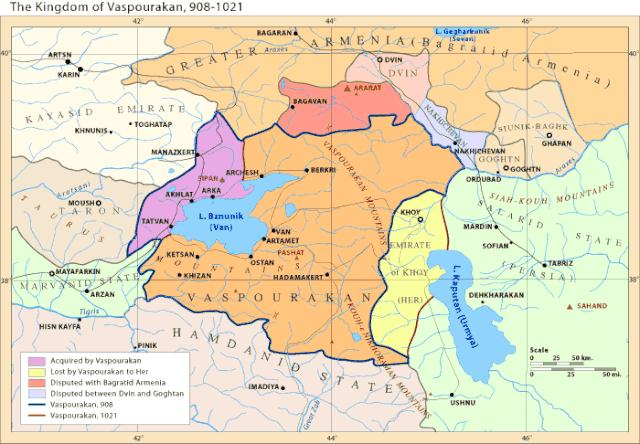1021
Calendar year From Wikipedia, the free encyclopedia
Year 1021 (MXXI) was a common year starting on Sunday of the Julian calendar.
| Gregorian calendar | 1021 MXXI |
| Ab urbe condita | 1774 |
| Armenian calendar | 470 ԹՎ ՆՀ |
| Assyrian calendar | 5771 |
| Balinese saka calendar | 942–943 |
| Bengali calendar | 427–428 |
| Berber calendar | 1971 |
| English Regnal year | N/A |
| Buddhist calendar | 1565 |
| Burmese calendar | 383 |
| Byzantine calendar | 6529–6530 |
| Chinese calendar | 庚申年 (Metal Monkey) 3718 or 3511 — to — 辛酉年 (Metal Rooster) 3719 or 3512 |
| Coptic calendar | 737–738 |
| Discordian calendar | 2187 |
| Ethiopian calendar | 1013–1014 |
| Hebrew calendar | 4781–4782 |
| Hindu calendars | |
| - Vikram Samvat | 1077–1078 |
| - Shaka Samvat | 942–943 |
| - Kali Yuga | 4121–4122 |
| Holocene calendar | 11021 |
| Igbo calendar | 21–22 |
| Iranian calendar | 399–400 |
| Islamic calendar | 411–412 |
| Japanese calendar | Kannin 5 / Jian 1 (治安元年) |
| Javanese calendar | 923–924 |
| Julian calendar | 1021 MXXI |
| Korean calendar | 3354 |
| Minguo calendar | 891 before ROC 民前891年 |
| Nanakshahi calendar | −447 |
| Seleucid era | 1332/1333 AG |
| Thai solar calendar | 1563–1564 |
| Tibetan calendar | 阳金猴年 (male Iron-Monkey) 1147 or 766 or −6 — to — 阴金鸡年 (female Iron-Rooster) 1148 or 767 or −5 |

Events
By place
Europe
- November – Emperor Henry II conducts his fourth Italian military campaign. He crosses the Brenner Pass with a 60,000-strong army, and reaches Verona, where he receives Lombard levies. Henry proceeds to Mantua and then into Ravenna, to spend Christmas there.
- The Taifa of Valencia, a Moorish kingdom in Al-Andalus (modern Spain), becomes independent from the Caliphate of Córdoba (approximate date).
Africa
- February 13 – On one of his habitual night rides in the outskirts of Cairo, the Fatimid caliph al-Hakim bi-Amr Allah disappears, most likely assassinated by disaffected palace factions, apparently involving his sister, Sitt al-Mulk.[1]
- March 26 – On the feast of Eid al-Adha, the death of al-Hakim, kept secret for six weeks, is announced, along with the succession of his son, al-Zahir li-i'zaz Din Allah. On the same day, al-Hakim's designated heir, Abd al-Rahim ibn Ilyas, is arrested in Damascus and brought to Egypt.[2]
- The last evidence of indigenous Christian and non-Arabophone culture in Tripolitania (modern Libya) is seen.[vague][3]
Asia
- Senekerim-Hovhannes Artsruni, king of Vaspurakan (Greater Armenia), surrenders his kingdom to the Byzantine Empire. In return, he receives Sebasteia and becomes governor of Cappadocia.[4]
- Battle of Shirimni, the Byzantine Empire under Basil II defeats the Kingdom of Georgia under Giorgi I at Shirimni, at the Lake Palakazio, modern Lake Çıldır, Turkey
- Hovhannes-Smbat III, King of the Armenian kingdom of Ani, is attacked by his younger brother Ashot IV, and loses much power to him, becoming concurrent king of outlying territories.
- Emperor Rajendra Chola I extends his influence of the Chola Empire to the banks of the Ganges River (North India) and invades Bengal.
- Sultan Mahmud of Ghazni appoints Malik Ayaz to the throne, making Lahore (modern Pakistan) the capital of the Ghaznavid Empire.
- The Chinese capital city of Kaifeng has some half a million residents by this year. Including all those present in the nine designated suburbs, the population is over a million people.
North America
- Vikings known to be occupying L'Anse aux Meadows on Newfoundland (island).[5]
Births
- December 8 – Wang Anshi, Chinese chancellor (d. 1086)
- Eudokia Makrembolitissa, Byzantine empress (d. 1096)
- Fujiwara no Kanshi, Japanese empress consort (d. 1102)
- Wugunai, Chinese chieftain of the Wanyan tribe (d. 1074)
Deaths
- February 13 – Al-Hakim bi-Amr Allah, Fatimid caliph (b. 985)
- March 5 – Arnulf, French archbishop and illegitimate son of Lothair III
- March 16 – Heribert, archbishop of Cologne (b. c. 970)
- July 7 – Fujiwara no Akimitsu, Japanese bureaucrat (b. 944)
- August 17 – Erkanbald, German abbot and archbishop
- August 29 – Minamoto no Yorimitsu, Japanese nobleman (b. 948)
- Fujiwara no Yoshikane, Japanese nobleman (b. 957)
- Hamid al-Din al-Kirmani, Fatimid scholar and philosopher
- Hamza ibn 'Ali ibn-Ahmad, founding leader of the Druze
- Liu Mei, Chinese official and general (approximate date)
- Mac Cú Ceanain, king of Uí Díarmata (Ireland)
- Shams al-Dawla, Buyid emir of Hamadan (Iran)
- Trilochanapala, king of the Kabul Shani dynasty
References
Wikiwand - on
Seamless Wikipedia browsing. On steroids.
